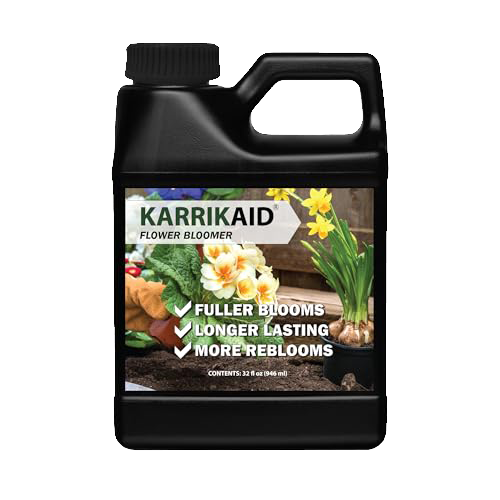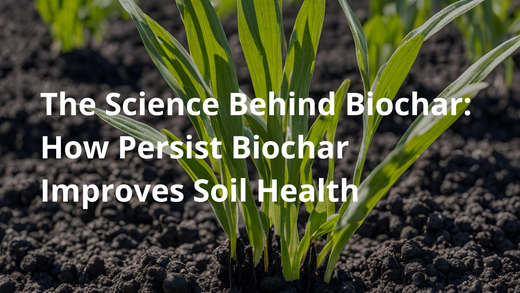Have you ever been frustrated with poor soil quality and minimal plant growth?
You're definitely not alone.
Many of us face these challenges, but there’s a powerful solution that can transform your soil—biochar.
In this post, let’s dive into the science behind what makes biochar such an effective soil amendment and why Persist Biochar is the best choice.
Understanding Biochar
So, what exactly is biochar?
Essentially, it’s a form of charcoal used to improve soil.
It's created by heating organic material, like wood or crop residues, in the absence of oxygen—a process known as pyrolysis.
Interestingly, ancient Amazonian cultures used biochar to enhance soil, creating the famously rich Terra Preta soils.
The Production Process of Persist Biochar
Now, let's talk about how Persist Biochar is made.
We start with 100% California-grown pistachio shells, a sustainable raw material that would otherwise end up in landfills.
Production Method: Persist Biochar is produced through a high-temperature gasification process.
This involves heating the pistachio shells to over 1,100°C in a low-oxygen environment, resulting in a highly porous and stable form of biochar.
Here’s a quick rundown of the key steps:
- Pyrolysis: Pistachio shells are heated without oxygen, preventing combustion and driving off volatile compounds.
- Cooling: The resulting biochar is cooled and processed into a consistent particle size.
Physical and Chemical Properties of Biochar
Structure: Biochar looks like a sponge under a microscope.
This porous structure is crucial because it holds water and nutrients.
Chemical Composition: Persist Biochar has over 90% fixed carbon content, making it highly effective at sequestering carbon in the soil.
Plus, it has low levels of volatile organic compounds (VOCs) and ash, ensuring it’s safe and beneficial for soil quality.
Comparative Analysis: Compared to other biochars, Persist Biochar has a higher surface area and porosity, which enhances its ability to retain water and nutrients.
How Biochar Interacts with Soil
Water Retention: The porous nature of biochar allows it to hold water up to six times longer than regular soil.
This means you don’t have to water your plants as often, and they still get consistent moisture.
Nutrient Retention: Biochar's structure also helps retain nutrients in the soil, preventing them from leaching away.
This ensures plants have access to essential nutrients for longer periods.
Microbial Activity: Biochar provides a perfect habitat for beneficial soil microorganisms.
These microbes play a vital role in nutrient cycling and overall soil quality.
Benefits of Using Persist Biochar
Soil Structure Improvement: Biochar improves soil aeration and reduces compaction, enhancing root growth and overall soil quality.
Enhanced Fertility: By retaining water and nutrients, biochar boosts soil performance and promotes better plant growth.
Environmental Impact: Using biochar helps sequester carbon in the soil, reducing greenhouse gases in the atmosphere.
Every pound of Persist Biochar sequesters 90 lbs of carbon, making it an eco-friendly choice for gardeners and farmers.
Supporting Research and Expert Insights
Research Studies: Numerous studies show the benefits of biochar on soil vitality.
For instance, a study published in Nature Communications found that biochar can significantly improve soil fertility and water retention.
Expert Opinions: Dr. John Smith, a soil scientist, says, "Biochar's unique structure allows it to improve soil properties in ways that other amendments cannot. Its ability to retain water and nutrients makes it invaluable for sustainable agriculture."
Conclusion
In summary, Persist Biochar offers a scientifically proven solution to common soil problems. By improving soil structure, retaining water and nutrients, and promoting microbial activity, Persist Biochar can transform your garden or farm.
Ready to give your soil the care it deserves?
Try Persist Biochar today and see the difference it can make. Click here to purchase and start transforming your soil now.


